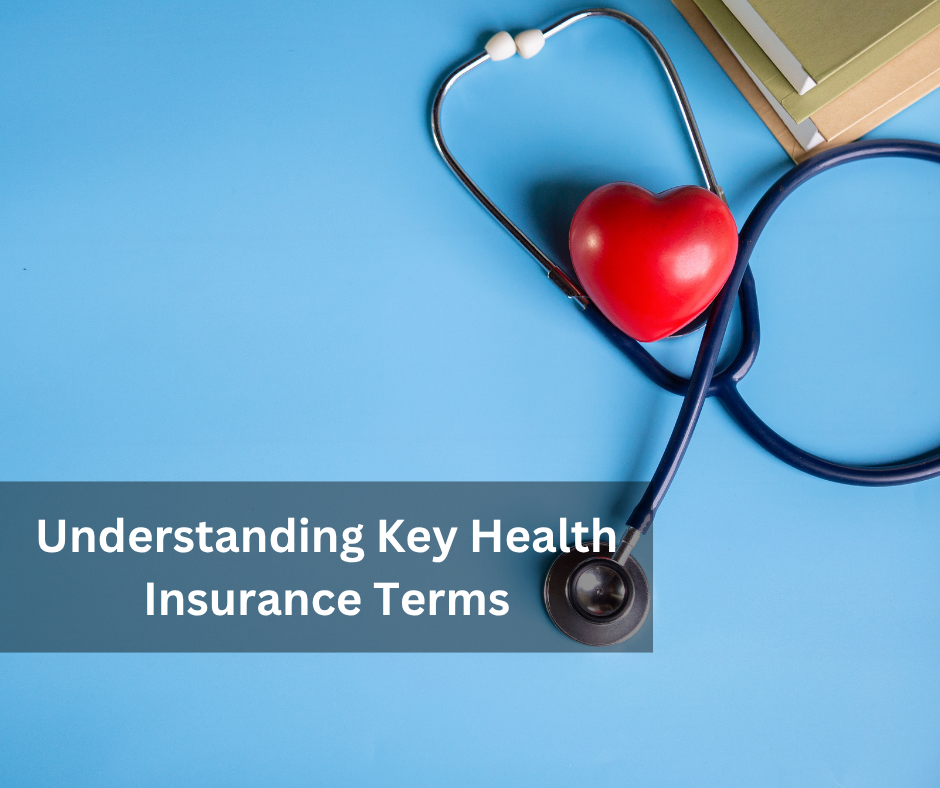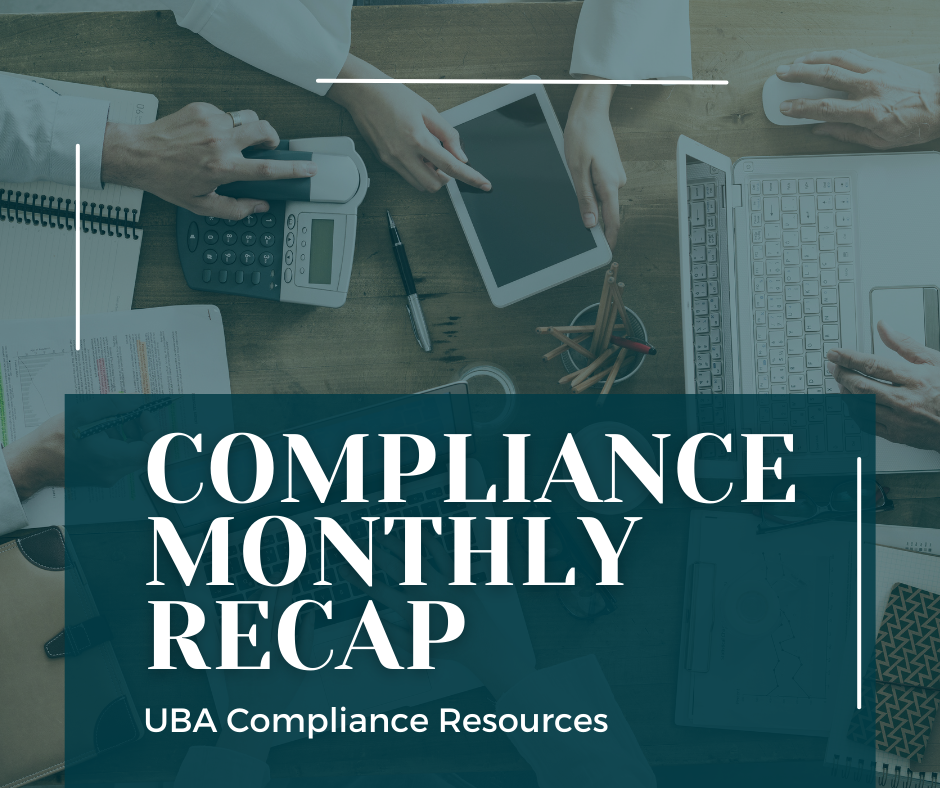Author: Cleveland Benefits Partners
-

The Truth About FSAs: Facts, Myths, and Tips
Flexible Spending Accounts (FSAs) offer unique advantages for managing health and dependent care expenses, but they operate differently from standard savings or spending accounts. Below are five essential facts about FSAs, along with common myths and clarifications to help you make the most of this benefit. Key FSA Facts: Tax Advantages: A major perk of…
-

Breaking Down Your Benefits: Understanding Key Terms
Selecting the right health insurance plans for your family is a critical process that requires careful attention from start to finish. Navigating health insurance becomes much simpler when you understand its terminology. Making sense of these terms empowers you to better understand your costs, benefits, and even estimate the price of a doctor’s visit. Premium:…
-

Compliance Recap | May 2025
CONSOLIDATED APPROPRIATIONS ACT 2024 RXDC REPORTING DEADLINE The Centers for Medicare & Medicaid Services (CMS) has reaffirmed that the instructions for reporting 2024 Prescription Drug Data Collection (RxDC) remain unchanged from 2023. The deadline for employers and plan sponsors to submit 2024 data is Sunday, June 1, 2025. Overview of RxDC Reporting Requirements Each year, employers sponsoring…
-

Form 5500 Filing Requirements: Deadlines, Penalties, and Compliance Options
If your company provides an employee benefit plan governed by the Employee Retirement Income Security Act (ERISA), you are likely obligated to file Form 5500. This annual report discloses key details about your organization’s benefit offerings, such as welfare benefit plans (including medical, dental, life, and disability coverage), retirement plans, fully insured plans, and self-funded…
-

Benefits 101: What Is Cancer Insurance?
The word “cancer” carries a weight that extends far beyond its medical implications. Beyond the physical and emotional toll, a cancer diagnosis can bring significant financial strain. While your primary health insurance will cover many treatment costs, there are often substantial out-of-pocket expenses that can quickly add up. This is where cancer insurance comes in.…
-

The Clock is Ticking: Don’t Miss the EEO-1 Report Deadline
The annual EEO-1 Report, mandated by the Equal Employment Opportunity Commission (EEOC), is a cornerstone of workplace diversity and anti-discrimination efforts in the United States. This data collection provides a demographic snapshot of America’s workforce, helping to monitor for discrimination and promote equal employment opportunity. Missing the deadline can lead to serious consequences, making it…
-

Disability Insurance Explained: Long-Term Disability
Your most valuable asset isn’t your house, car or retirement account. It’s the ability to make a living. Long-term disability insurance (LTD) provides financial protection by replacing a portion of your income—typically 50% to 70%—if you become unable to work due to a prolonged illness, injury, or accident. This benefit is paid directly to you…
-

Compliance Recap | April 2025
MARYLAND DELAYS PAID FAMILY AND MEDICAL LEAVE IMPLEMENTATION Originally approved in 2022, the state-regulated family and medical leave insurance (FAMLI) program mandates that all Maryland employers provide qualified employees up to 12 weeks of paid family and medical leave, and potentially another 12 weeks for parental leave—totaling up to 24 weeks of paid leave. Qualified…
-

From Anxiety to Action: Managing the Impact of Doomscrolling on Your Well-Being
In stressful or uncertain times, it’s easy to get caught in an endless cycle of scrolling through negative news and social media. This behavior, known as doomscrolling, is increasingly common—but it can take a serious toll on your mental and physical health. This article explores the risks of doomscrolling and offers practical tips to help…
-

Mind Matters: Supporting Employee Mental Health at Work
Every year, millions of people experience mental health challenges with limited access to care. According to the World Health Organization, 1 in 8 people globally are affected. Conditions like anxiety and depression significantly reduce productivity, costing the global economy around $1 trillion annually. Despite the rising demand for support, more than two-thirds of those who…
-

Compliance Recap | March 2025
ACA REPORTING Affordable Care Act (ACA) reporting for applicable large employers (those with 50 or more employees) was due for the 2024 plan year in March. Reporting to Employees – due March 3, 2025 Form 1095-C: For Applicable Large Employers (ALEs) to report health coverage offered to full-time employees. Form 1095-B: For employers with self-funded…
-

Disability Insurance Explained: Short-Term Disability
Life sometimes throws you a curveball. You might sprain an ankle playing soccer, need surgery, or experience a difficult pregnancy. These situations can temporarily prevent you from working and earning an income. That’s where short-term disability insurance comes in. It acts as a financial safety net, providing income replacement while you recover and get back…
-

Voluntary Benefits: The Missing Piece of Your Compensation Puzzle
The Rise of Voluntary Benefits As healthcare costs increase, so does the demand for voluntary benefits. These optional benefits allow employees to select and pay for additional perks to meet their individual needs, especially in today’s diverse workforce. They’re also a valuable supplement to health insurance, particularly as healthcare expenses rise and affordability becomes a…
-

The Future of Leadership: Human Connection in a Digital World
In an era defined by rapid technological advancement, the nature of leadership is evolving at an unprecedented pace. As artificial intelligence, remote work, and digital communication tools become increasingly integrated into our professional lives, the role of human connection in leadership has never been more crucial. The future of leadership will hinge on the ability…
-

The Big Differences Among Generations at Work
The generations at work – Gen Z, Millennials, Gen X, and Baby Boomers – continue to fascinate business leaders and especially those in HR, who are charged with talent management. Trying to understand each generation’s attitudes, habits, and history is important. While each person is unique, these shared generational experiences can help people better orchestrate teams and get the most out of…
-

Compliance Recap | Feb. 2025
RESULTS OF AGENCY ENFORCEMENT OF MHPAEA INVESTIGATIONS The U.S. Departments of Labor (DOL) and Health and Human Services (HHS) recently released their latest enforcement findings on the Mental Health Parity and Addiction Equity Act (MHPAEA), covering investigations completed during the 2023-2024 fiscal year. Their report sheds light on key areas of noncompliance and emphasizes the government’s ongoing…
-

More Than Just a Pretty Smile: The Impact of Oral Health
Did you know that your oral health can have a significant impact on your overall health? It’s true! Your mouth offers clues about your general well-being. Good dental hygiene can help improve your overall health. As a bonus, maintaining good oral health can even REDUCE your healthcare costs! Your Mouth: A Window to Your Health…
-

Building a Financially Healthy Workforce
Financial stress is a silent epidemic plaguing workplaces everywhere. It impacts employees at all levels, leading to decreased productivity, lower morale, and increased absenteeism. But there’s good news: employers hold the key to building a financially healthy workforce. Stress and Financial Well-Being Cultivating your employees’ financial well-being is a necessity in creating a productive and…
-

New Legislation Updates ACA Reporting Rules
At the close of 2024, Congress passed two new pieces of legislation: the Paperwork Burden Reduction Act and the Employer Reporting Improvement Act. These laws simplify the Affordable Care Act (ACA) reporting requirements for employers and introduce new limits on the IRS’s authority to enforce “pay-or-play” penalties, among other changes. Under the ACA, applicable large…
-

Compliance Recap | January 2025
IRS ISSUES TAX GUIDANCE ON STATE PAID FAMILY AND MEDICAL LEAVE PROGRAMS On January 15, 2025, the Internal Revenue Service (IRS) released Revenue Ruling 2025-4 (providing guidance on the taxation and reporting of contributions and benefits under state paid family and medical leave (SPFML) programs. Key Highlights Employer and Employee Contributions Employee-required SPFML contributions paid by an…
-

Beyond Open Enrollment: Engaging Employees with Benefits
Most organizations treat employee benefits like a seasonal event. Open enrollment brings a flurry of activity – emails, seminars, and even benefits fairs. However, communication often dwindles after this initial push, leaving employees confused and underutilizing their valuable benefits. This is a missed opportunity. Research shows that employees crave more benefits education, spending hours researching…